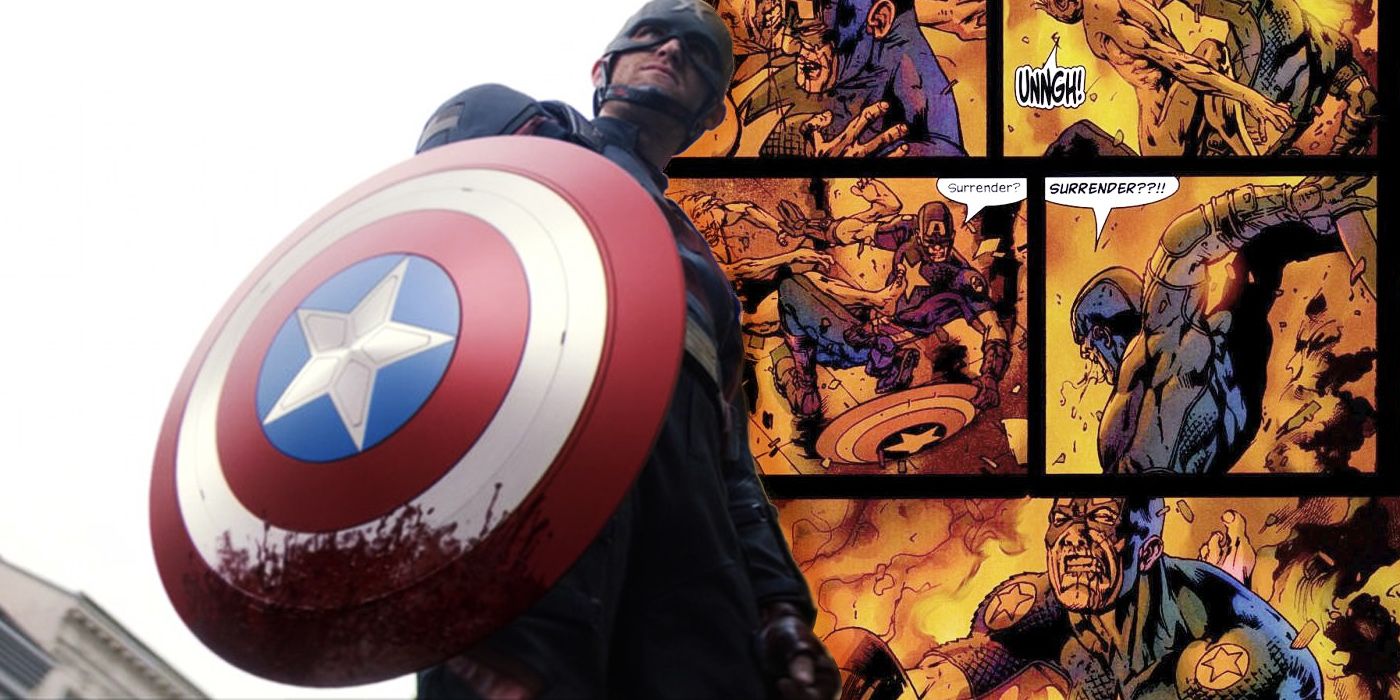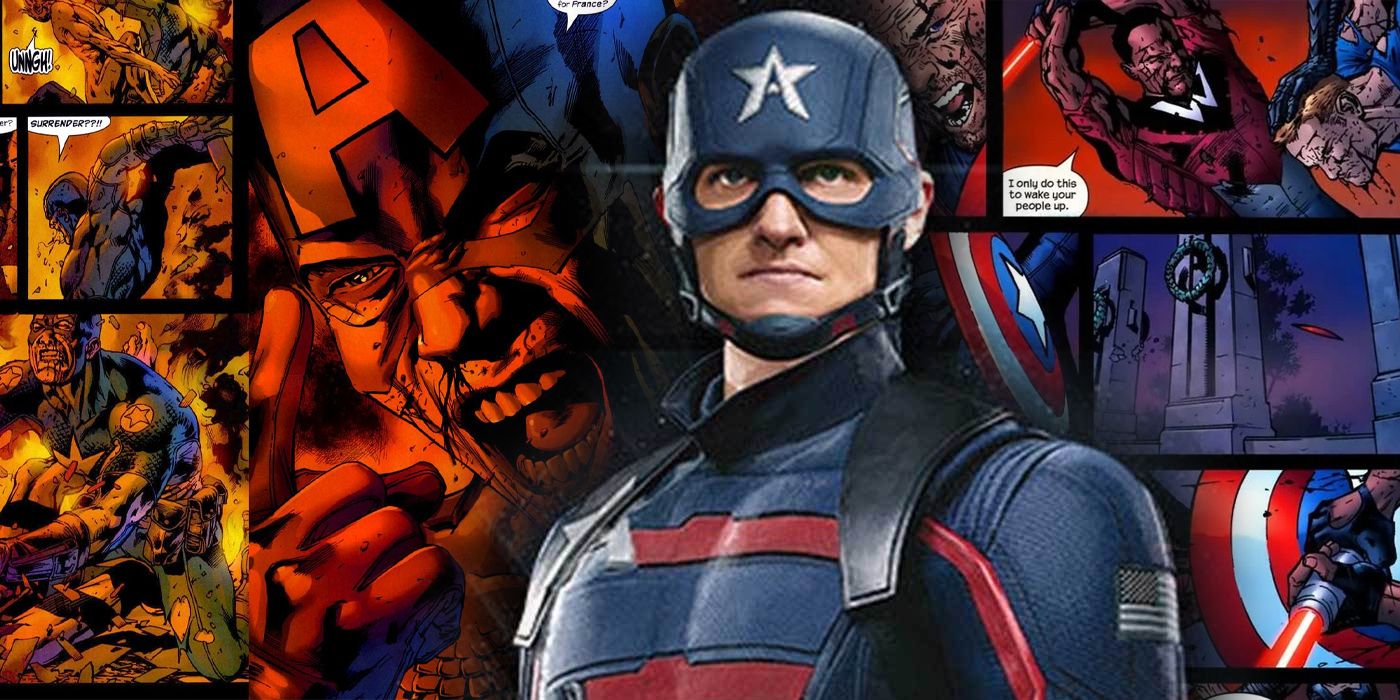Warning: SPOILERS for The Falcon and the Winter Soldier, episode 4, "The Whole World Is Watching."
The John Walker twist in The Falcon and the Winter Soldier episode 4 references similarly shocking (and controversial) Captain America stories from Marvel Comics' alternate "Ultimate" universe (Earth-1610). At the end of "The Whole World Is Watching," Walker — who had dosed himself with the Super-Soldier Serum — brutally beats a man to death in a scene surprisingly gruesome for the MCU. The moment firmly establishes that John Walker is unfit to be Captain America, but also makes a commentary on the ethics of military-sanctioned violence. The shots are framed in a manner reminiscent of scenes from Mark Millar's The Ultimates run, which similarly provoked questions on Captain America and morality.
The ethics of political violence is a main theme in The Falcon and the Winter Soldier, particularly the episode "The Whole World Is Watching." The Flag-Smashers have, so far, been characterized as sympathetic rebels using violence as a tool to liberate their people — an admittedly honorable cause, but accomplished through dishonorable means that hurt innocent bystanders. When Battlestar is killed by Karli Morgenthau, the moment plays out like a tragic accident; in a room full of enhanced soldiers, Battlestar has the misfortune of being caught in the fray and struck down. It was not a calculated move, but the result of reckless action.
John Walker's response, however reactionary, is intentional. The Super-Soldier chases down the nearest of the Flag-Smasher, Nico, and viciously bludgeons the man to death while a horrified crowd looks on. Nico had surrendered and posed no immediate danger, further illustrating how vicious and cruel Walker's instincts are. The staging and Walker's mode of attack both echo scenes from Ultimates that saw Steve Rogers' Captain America brutally beat an opponent with lethal force: him attacking Herr Kleiser with his shield, and him killing Azerbaijani terrorist Abdul Al-Rahman.
How The Falcon & The Winter Soldier References The Ultimates
The most obvious parallel between John Walker in Falcon and the Winter Soldier and The Ultimates is the scene in which Rogers strikes down on Herr Kleiser with his shield, using enough force to cut the Chitauri agent in half (eventually leading to the villain's death, with Hulk's help). Although the situation is less morally corrupt than the deranged Walker seeking vengeance, Ultimates does paint Captain American in an unusually vicious and gruesome light, with the Cap shown angrily slamming his weapon down on a man who is on his back. The conflict also includes arguably Captain America's most infamous line from the Ultimate Universe of Marvel Comics: "Surrender? Surrender??!! You think this letter on my head stands for France?" — creating an interesting contrast to John Walker brutally striking a man trying to surrender.
The other parallel is similarly justifiable within the context of The Ultimates, but more problematic when examined with a critical lens. In The Ultimates Vol. 2, #12, Steve Rogers kills Abdul Al-Rahman, who — like the Flag-Smashers — is a terrorist fighting for a cause. Al-Rahman, aka Colonel, is the Azerbaijani-equivalent of Steve Rogers: he too was a scrawny kid when he was selected to receive the Super-Soldier Serum, but instead of wanting to fight to defend America, Colonel wants to destroy it. Captain America decapitated Abdul in front of the Vietnam Veterans Memorial, rejecting (or at least ignoring) his opponent's perspective on American foreign policy in the Middle East. Overall, the tone of the Liberators storyline is deeply offensive, but read as a destabilizing exploration of superhero ethics (like Alan Moore's Watchmen), Ultimates poses interesting questions about the political nature of superhero narratives — and the power (and appeal) of propaganda.
The Falcon and the Winter Soldier is far more palatable than The Ultimates, and the Disney+ series has been careful to set up clear moral boundaries: without completely denouncing the American military, the series criticizes propaganda and "cold-blooded" violence. In the MCU, aggression is often necessary — but the heroes are separated from the villains by their ability to exercise control and demonstrate mercy.








